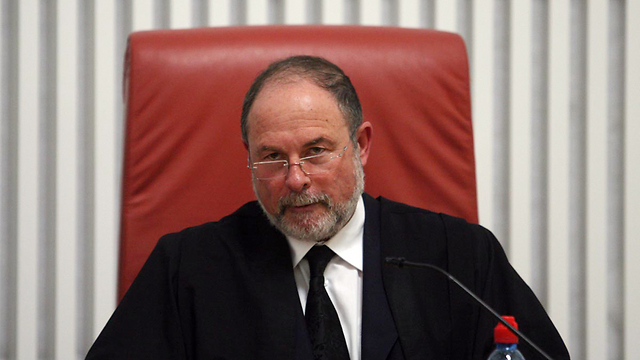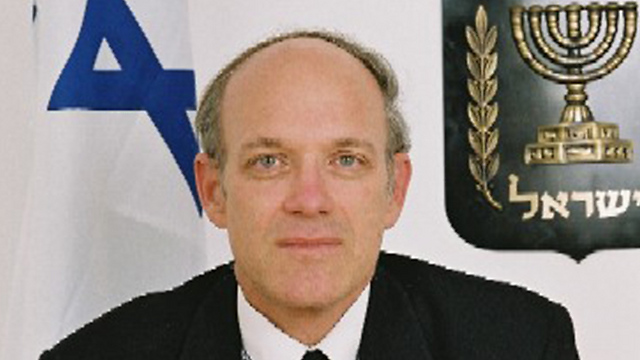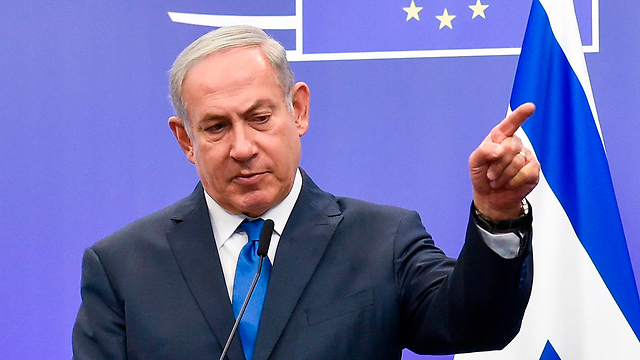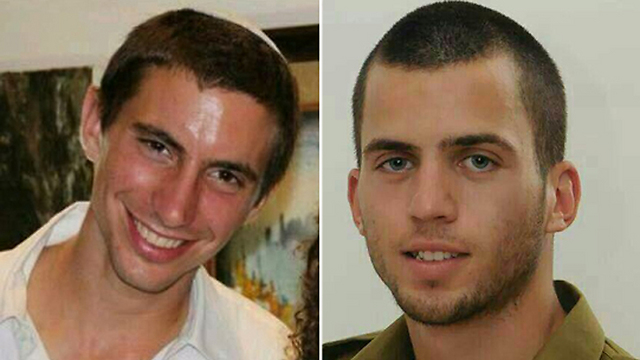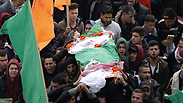
HCJ rules terrorists' bodies can't be held as bargaining chips
The High Court of Justice accepts a petition from families of killed terrorists whose bodies are held by Israel for future negotiations with Hamas, ruling that the state can't do so unless they enact law in line with international standards authorizing it; HCJ gives the state 6 months to pass said law or release bodies of terrorists to their respective families; Netanyahu to convene Security Cabinet on the issue.
The High Court of Justice ruled Thursday that the state cannot hold indefinitely the bodies of terrorists, forcing the government to pass a law which will enable the state to legally hold bodies already in its possession—or else return them to their families.
The High Court of Justice gave the state six months to draft a new law that would meet international standards.
"The State of Israel—as a state of law—cannot hold the bodies of terrorists for the purpose of negotiations in the absence of an explicit, authoritative provision of law," Justice Danziger said in his ruling.
"I will admit to the truth, that the decision on these petitions is very difficult for me," added the judge. "The suffering of the Israeli POWs and MIAs held captive by Hamas and the pain of their families is unbearable. However, as judges, our job is to rule according to law and in accordance with the binding legal rules."
In a minority opinion was Judge Neal Hendel, who believed that there was authority to allow the state to hold the bodies of the terrorists.
"The State of Israel is in a state of emergency—literally, even legally—from the day it was founded," Handel wrote in his ruling, adding that while—by the strictest interpretation of the law—the state has no authority to hold the bodies of terrorists, "the ugliness and cruelty shown by the terrorist organizations, which hold civilians and the bodies of IDF soldiers and demand a price not only for the living but also for the dead, leaves us no choice.
"In this reality, which is also imposed upon us, we must tread a fine line between achieving the goal of returning the citizens of Israel and the bodies of IDF soldiers, and preserving the dignity of the dead—even terrorists.
"If the law acknowledges the feelings of the relatives of the terrorists, then the cries of the families of the living and the dead by Hamas will, all the more so, continue to haunt us."
In light of the HCJ requiring the Knesset to pass legislation on the matter, Defense Minister Avigdor Lieberman instructed the Knesset to act without delay to enact a law that would allow the holding of terrorist bodies for the purpose of negotiating the return of prisoners and missing persons.
Prime Minister Benjamin Netanyahu said after the ruling that he would convene the Security Cabinet Sunday to draft "possible legal solutions" in order to pressure Hamas to return the bodies of Israeli soldiers and civilians held in Gaza, calling the HCJ's ruling "very problematic."
"We must not give free gifts to Hamas," Netanyahu said.
Meanwhile, Justice Minister Ayelet Shaked announced that she would write an amendment to the anti-terror law that would allow the holding of terrorists' bodies for the purpose of negotiations and start promoting it next week.
"The Israeli government will not return the bodies of terrorists as long as the bodies of our soldiers are in the hands of the enemy," Shaked asserted.
The state currently holds the bodies of nine terrorist—seven of which have already been buried—among which are the bodies of those who carried out attacks in East Talpiot and Kiryat Arba, where the late Hallel Yaffa Ariel was murdered in her home about a year and a half ago.
The State refuses to return the bodies on the claim that holding them of the terrorists might help in obtaining a prisoner exchange deal with Hamas, which holds the bodies of the late IDF soldiers Lieutenant Hadar Goldin and Staff Sergeant Oron Shaul, who were killed in Operation Protective Edge, and civilians Abera Mengistu and Hisham al-Sayed.
Commenting on the High Court's decision, the Goldin family expressed their frustration over the government's inaction and their hope that the ruling will boost government efforts for the return of their son's remains.
"We have been around for months with the feeling that the January cabinet decision to put pressure on Hamas is hollow and declarative," they said in a statement Thursday. "This is the reason we approached the High Court of Justice on this matter, and the decision today will only increase the pressure on Netanyahu and the cabinet ministers to get up from their seats, roll up their sleeves and begin working for Hadar and Oron to return to Israel.
"We are fed up with empty talk and meaningless decisions. It is time to act, to use all leverages and apply effective pressures. The time has come for us to be strong and stand as a protective edge against Hamas."










